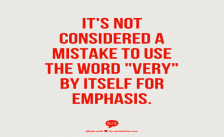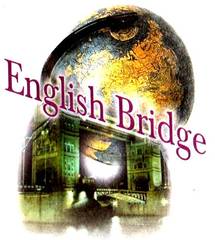 Fish or Fishes?
Fish or Fishes?
Is the plural of fish fish or fishes — it depends.
Fish is the most common plural form of the word fish, as in Squiggly brought home fish for the aquarium, but there are some instances in which people use fishes instead:Scientists who study fish (ichthyologists), for example, often refer to different species as fishes. A quick Google Books search returns many scientific tomes talking about the different kinds of fishes that researchers have found in various regions, such as thirty kinds of fishes off the coast of California and 149 kinds of fishes in Minnesota.In the Bible, Jesus feeds thousands of people with loaves and fishes. The movie The Godfather popularized the saying that someone sleeps with the fishes to indicate that he or she has been killed by the mob and dumped in the water. A few different sayings begin with If wishes were fishes. The most common one I’ve seen is If wishes were fishes, we’d all cast nets into the sea.The Quick and Dirty Tip is that the plural of fish is fish, unless you’re writing about different species of fish, are a mobster, are quoting the Bible, or are trying to make a rhyme.
____________________________
Misusing “So” and “Very”
 Today's topic is something I am very guilty of doing myself, and I’m so excited to give you the rundown: It’s overusing the words so and very. A listener named Taryn wrote in asking if it is acceptable to write that she is "sooooooo" happy that she is going to the prom, which got me thinking about not only the word so but also the word very.Both words are often used as intensifiers, meaning they allow you to express that you are happier than just happy. In the formal writing world, both words are looked down upon, but so (by itself) is sometimes considered worse than very (1). Misusing So When you're speaking, emphasizing the word so seems to add punch to a simple statement—I'm sooooo happy—and this is why Taryn is tempted to write the word with so many O's: She's used to saying that she's "soooooo" happy, which is fine in informal conversation. But style guides say it should be avoided in writing. There's even a strange discussion in Merriam-Webster’s Dictionary of English Usage about whether using so for emphasis is a distinctly female failing, with the Dictionary concluding that it's a universal error even though other commentators link it specifically to women (2). On the other hand, when so is paired with that, it becomes more acceptable in writing. For example, even though it's considered bad form to write, "I was so happy," it's OK to write, "I was so happy that I jumped for joy." When you say you are so happy that you jumped for joy, so becomes an indefinite adverb of degree instead of a vague intensifier. In other words, so leads into a thought about how happy you were. How happy were you? So happy that you jumped for joy. The grammar mavens find it much more acceptable when so is linked to another clause in that way (2, 3). Overusing VeryUnlike with the word so, it's not considered a actual error to use the word very by itself for emphasis. Nevertheless, most style guides warn against overdoing it. Instead of saying, "I was very hungry," they encourage you to search for a single more creative adjective--something like "I was famished," or "I was ravenous." Replacing two simple words like very hungry with one more descriptive word like ravenous makes your writing tighter and usually more interesting, too (4, 5).
Today's topic is something I am very guilty of doing myself, and I’m so excited to give you the rundown: It’s overusing the words so and very. A listener named Taryn wrote in asking if it is acceptable to write that she is "sooooooo" happy that she is going to the prom, which got me thinking about not only the word so but also the word very.Both words are often used as intensifiers, meaning they allow you to express that you are happier than just happy. In the formal writing world, both words are looked down upon, but so (by itself) is sometimes considered worse than very (1). Misusing So When you're speaking, emphasizing the word so seems to add punch to a simple statement—I'm sooooo happy—and this is why Taryn is tempted to write the word with so many O's: She's used to saying that she's "soooooo" happy, which is fine in informal conversation. But style guides say it should be avoided in writing. There's even a strange discussion in Merriam-Webster’s Dictionary of English Usage about whether using so for emphasis is a distinctly female failing, with the Dictionary concluding that it's a universal error even though other commentators link it specifically to women (2). On the other hand, when so is paired with that, it becomes more acceptable in writing. For example, even though it's considered bad form to write, "I was so happy," it's OK to write, "I was so happy that I jumped for joy." When you say you are so happy that you jumped for joy, so becomes an indefinite adverb of degree instead of a vague intensifier. In other words, so leads into a thought about how happy you were. How happy were you? So happy that you jumped for joy. The grammar mavens find it much more acceptable when so is linked to another clause in that way (2, 3). Overusing VeryUnlike with the word so, it's not considered a actual error to use the word very by itself for emphasis. Nevertheless, most style guides warn against overdoing it. Instead of saying, "I was very hungry," they encourage you to search for a single more creative adjective--something like "I was famished," or "I was ravenous." Replacing two simple words like very hungry with one more descriptive word like ravenous makes your writing tighter and usually more interesting, too (4, 5).
Long-time listeners may remember that the issue of very as an intensifier came up when I talked about modifying absolutes. Most people believe that very is out of place and not the best choice in phrases such as very unique and very dead, where it modifies something that doesn't have degrees. You’re either dead or you're not. Very dead isn’t more dead than just plain old dead. Still, very shouldn't be banished from the language. Merriam-Webster's Dictionary of English Usage notes that E.B. White used the repetition of very to excellent effect in a letter, writing, "It was a day of very white clouds, very blue skies, and very dark green spruces." White is the co-author of the famous style guide known as Strunk & White and formally titled The Elements of Style, and I agree that the effect would be lost if White had written, "It was a day of snowy clouds, oceanic skies, and evergreen spruces."In addition, the Chicago Manual of Style includes phrases very long titles, very wide tables, very small numbers, and so on. It would seem silly if they instead talked about something more creative like lengthy titles, expansive tables, and itty-bitty numbers. Very long, very wide, and very small get the point across more clearly (although Chicago could probably also get away with just long, wide, and small) (6, 7, 8). Finally, I shouldn't have to tell you this, but just to be safe, very is spelled v-e-r-y. Vary with an A (v-a-r-y) is a verb that means "to differ or change. "SummaryDon't use the word so by itself as an intensifier in formal writing, and be careful when you use the word very. It's usually better to use a stronger adjective to describe something than to throw a so or a very in front of a weak adjective. You can use very as an intensifier when it creates a nice effect or is the clearest choice, but make sure you aren't dropping it in just because you're being lazy.
______________________________
How to Make Names that End in -s Plural
Mrs. Mears wondered whether the way she pronounces her last name determines how she should make it plural. Are she and her husband the Mears or the Mearses?

Last week a woman asked me how to make her last name plural. She has recently married and become Mrs. Mears, and she wanted to know whether she and her husband are simply the Mears, or if together, they are the Mearses (making it plural by adding an -es to the end).
She wrote, “I am aware that if the word ends with an -s you would normally add an -es to pluralize as in Lewis and the Lewises. However, I have also heard about the exception when the word that ends in an -s has the sound of a z such as Withers as opposed to an s sound as with Lewis. I used to think the plural would be "the Mearses," but after some research I am wondering if perhaps it should indeed be "the Mears." Her question made me pause. I was 99% sure it should be the Mearses, but when she mentioned the sounds-like-z rule, I vaguely remembered hearing something like that somewhere, so I did some research just to be sure.
Most Sources Say to Add -es to the EndThe Chicago Manual of Style, the AP Stylebook, Garner’s Modern American Usage, and the Cambridge Guide to English Usage all say to make names that end with -s plural by adding -es, and they make no exceptions for pronunciation. Garner is particularly adamant that adding -es is the only way to do it.
The one source I found that does mention the z-exception is the online Guide to Grammar and Writing produced by the Capital Community College Foundation, and even they say there are exceptions to the rule. For example, the site says it should be Joneses even though Jones ends with a z-sound. I usually consider that site to be a credible source, but in this case, with so many other sources lined up against it, and it not being all that firm about the rule, I’d say to ignore their advice and go with adding -es in all cases and saying, “We are the Mearses.
”It’s Difficult to Have a Rule Based on Pronunciation.
The z-sound rule is also a problem for another reason besides all the style guides lining up against it: it’s hard to determine whether a name ends with an s-sound or a z-sound—at least it is for me. I tried the trick Gretchen recommended in her article on the Canadian pronunciation of the word about. I put my hand on my throat when I pronounced Mears, Jones, and some other names to see if I could feel a buzzing, which would indicate I was making a z-sound. Sometimes I was and sometimes I wasn’t. The pronunciation difference between an s and a z was too subtle for me to pin down. Do they pronounce their name “Mears” or “Mearz”? I wouldn’t be surprised if different families pronounce it different ways, so having a spelling rule based on pronunciation would be a problem. For that reason, I’m especially glad I can tell you that just adding -es is the best choice. Call yourself the Mearses.
